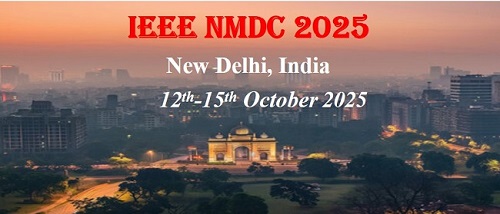David Gracias
3D Nanofabrication by curving, bending, and folding
David Gracias, Professor, Department of Chemical and Biomolecular Engineering, Johns Hopkins University
Abstract:
Conventional VLSI lithographic patterning approaches have revolutionized modern engineering, but they are inherently planar. Recently, researchers have discovered that the interplay between out-of-plane stresses, capillary forces or swelling vs bending rigidity of patterned thin films can be engineered so as to cause spontaneous 2D to 3D shape transformations by curving, bending, and folding in a reproducible and high-throughput manner.
In this talk, the design, assembly, and characterization of such 3D nanostructured materials and devices will be described. The emphasis of our approach has been on enabling mass-production of lithographically micro, nano, and smart 3D devices in a high-throughput manner with diverse materials such as 2D layered materials (e.g. graphene, MoS2), silicon and related materials, polymers (e.g. SU8) and hydrogels. By leveraging the precision of planar lithography approaches such as photo, e-beam, and nanoimprint methodologies, a range of functional patterns can be incorporated into these thin film self-assembling systems so as to provide enhanced functionality for optics, electronics, and medicine. Assembled devices include metamaterials, flexible biosensors, curved microfluidics, drug-delivery capsules, anatomically realistic models for tissue engineering, antennas, e-blocks, sensors, soft-robotic actuators, and untethered surgical tools.
Biography:
 David Gracias is a Professor at the Johns Hopkins University (JHU) in Baltimore. He did his undergraduate at the Indian Institute of Technology, received his PhD from UC Berkeley, did post-doctoral research at Harvard University and worked at Intel Corporation prior to starting his independent laboratory at JHU in 2003. Prof. Gracias has pioneered the development of 3D, integrated micro and nanodevices using a variety of patterning, self-folding and self-assembly approaches. He has co-authored over 190 technical articles, holds 33 issued patents and has delivered over 100 invited technical talks. Prof. Gracias has received a number of major awards including the NIH Director’s New Innovator Award, Beckman Young Investigator Award, NSF Career Award, Camille Dreyfus Teacher Scholar Award, Beckman Young Investigator Award, and Friedrich Wilhelm Bessel Award. He is a Fellow of the American Institute for Medical and Biological Engineering (AIMBE), Royal Society of Chemistry (RSc), American Association for the Advancement of Science (AAAS) and the Institute of Electrical and Electronics Engineers (IEEE).
David Gracias is a Professor at the Johns Hopkins University (JHU) in Baltimore. He did his undergraduate at the Indian Institute of Technology, received his PhD from UC Berkeley, did post-doctoral research at Harvard University and worked at Intel Corporation prior to starting his independent laboratory at JHU in 2003. Prof. Gracias has pioneered the development of 3D, integrated micro and nanodevices using a variety of patterning, self-folding and self-assembly approaches. He has co-authored over 190 technical articles, holds 33 issued patents and has delivered over 100 invited technical talks. Prof. Gracias has received a number of major awards including the NIH Director’s New Innovator Award, Beckman Young Investigator Award, NSF Career Award, Camille Dreyfus Teacher Scholar Award, Beckman Young Investigator Award, and Friedrich Wilhelm Bessel Award. He is a Fellow of the American Institute for Medical and Biological Engineering (AIMBE), Royal Society of Chemistry (RSc), American Association for the Advancement of Science (AAAS) and the Institute of Electrical and Electronics Engineers (IEEE).

